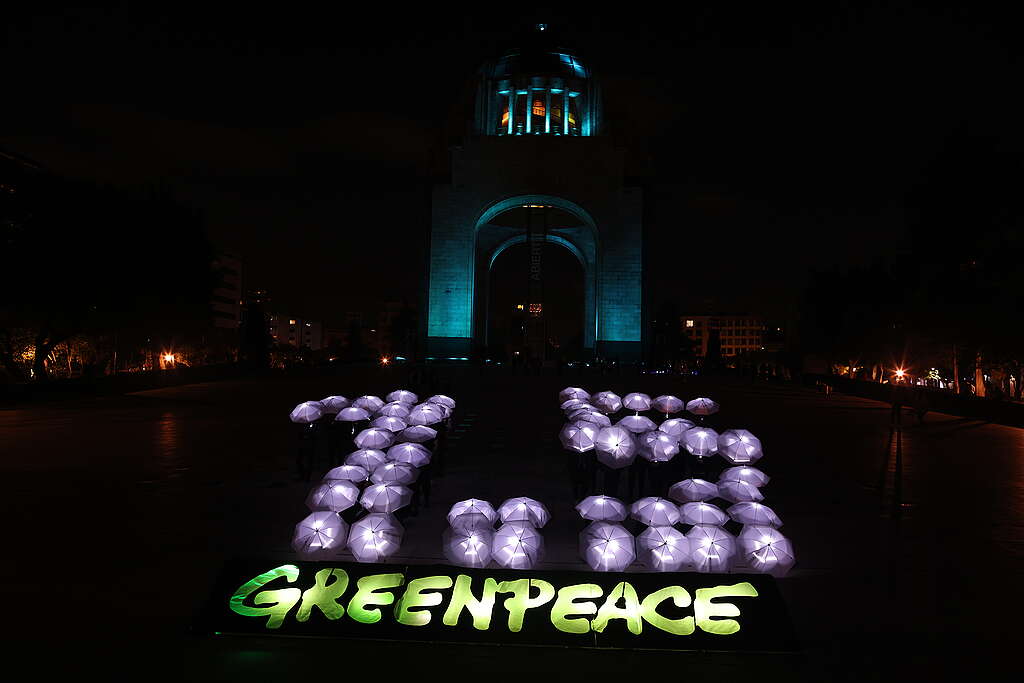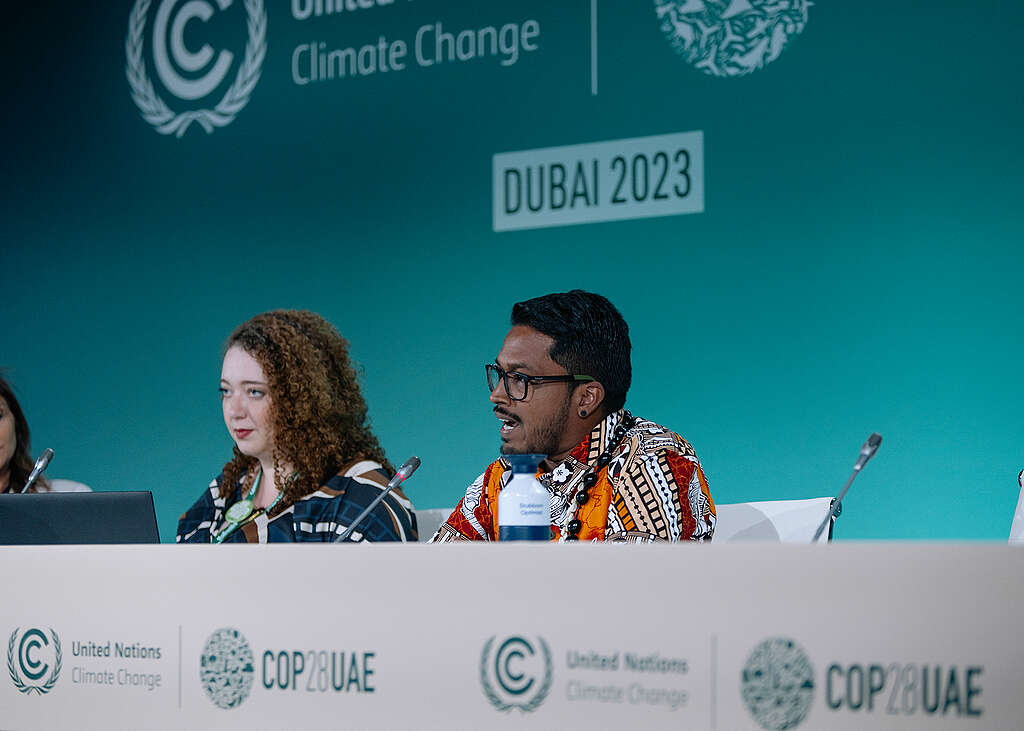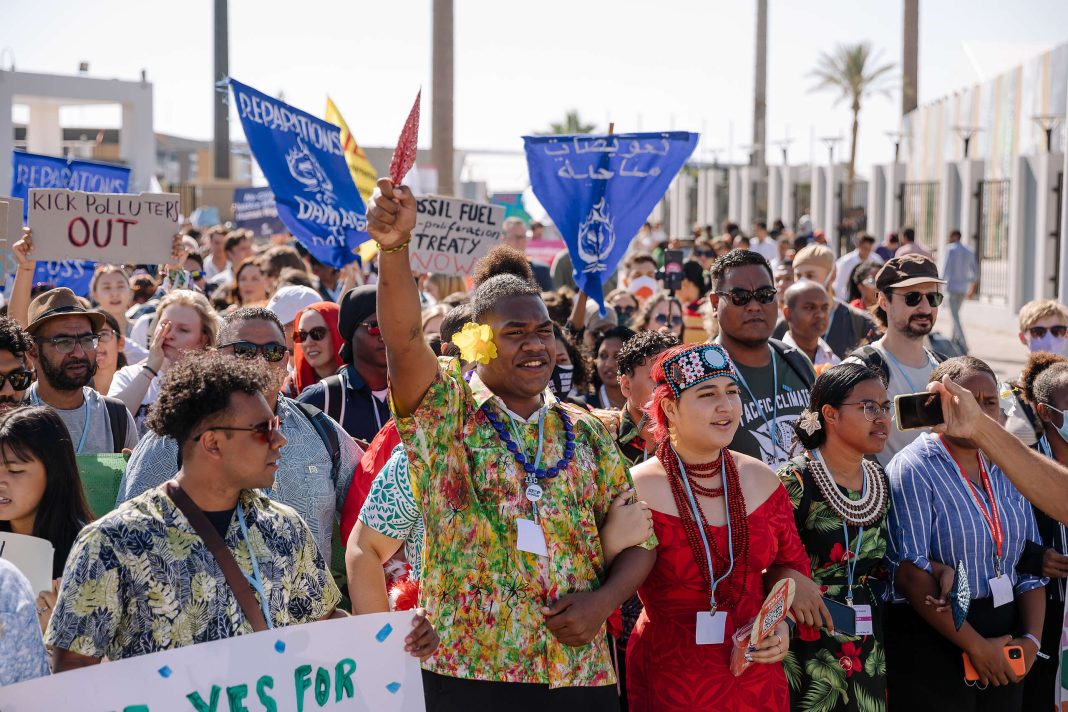The UN annual climate talks presents a vital opportunity for countries to come together, share ideas, and commit to meaningful climate action.
Understanding the climate action commitments made by global leaders at COP is essential for our Australian and Pacific communities, who are facing the extreme and deadly impacts of climate change driven by fossil fuels.
What is COP29 and what happens during these discussions?
COP29 is not just another conference; it’s a chance to reshape our future. It’s a major global event where leaders from 198 states come together to discuss and commit to climate change solutions. This year, is all about climate finance – the key enabler to implementing what they agreed to from previous COPs.
Although many people’s eyes glaze over when I discuss the importance of global talks and negotiations, decisions made by global leaders here are critical for our future survival.
With rising sea levels threatening our coastlines, extreme weather events impacting our communities, and biodiversity loss accelerating, we need urgent, collective action to safeguard our communities.
What’s on the agenda for COP29?
Expect discussions on climate finance, what states need to contribute domestically to transition to a fossil fuel-free world, and adopting renewable energy at scale.
The most important thing on the negotiating table this year is the New Climate Finance Goal (NCQG), a new climate finance objective that asks for a large increase in public funding for developing nations.
In a nutshell, The time has come for those who profit from pollution to pay for the solutions. This will help hold big polluters accountable and demand fair climate finance for those who need it most.
Australia and the Pacific’s role at COP29
Leaders from the Pacific Islands have long been powerful voices in this global conversation, pushing for bold and immediate action. The Loss and Damage Finance Fund, the Global Oceans Treaty, and the Paris Agreement to commitment to 1.5°C were all agreements pushed by the small island states.
At COP29, Pacific nations advocate for fair climate finance, support for adaptation measures, and commitments to halt fossil fuel projects.
Yet, while these nations advocate for a fast and fair fossil fuel phase out, Australia—one of the world’s largest fossil fuel exporters—continues to approve and subsidise new coal and gas projects.
At COP28 last year, Australia committed to transition away from fossil fuels, signalling the end of the fossil fuel era. However, the government still continues to greenlight new coal and gas mega projects.
If the Australian government is serious about addressing global emissions, it must stop approving and subsidizing fossil fuel projects—starting with Woodside’s Burrub Hub gas project, a climate disaster that would emit 13 times Australia’s annual emissions over its 50-year lifetime.
Instead of propping up polluting private fossil fuel corporations, the billions of dollars saved could be channelled towards Australian and Pacific communities being directly impacted by the climate crisis. It’s time for polluters to pay for the damage they’ve caused.
As one of the top global polluters, Australia must lead by example at COP29, making fair and substantial contributions to climate finance, including Loss and Damage funding.
What is the Paris Agreement and 1.5 degrees?
Sadly, it has nothing to do with cheese and croissants. The Paris Agreement is an international treaty established in 2015 to combat climate change and limit global warming to well below 2 degrees Celsius above pre-industrial levels, with efforts to limit it to 1.5 degrees. To avoid the worst impacts of climate change, we need to keep global warming below 1.5°C. No new fossil fuel projects can coexist with this goal.

In simple terms, 1.5 degrees is not a ‘nice-to-have’ — it’s a lifeline for Pacific communities who are facing profound impacts to their livelihoods, their irreplaceable cultures and their very existence.
What’s Greenpeace’s role at COP?
COP events draw a diverse mix of attendees, including world leaders, government officials, civil society groups, youth activists, Indigenous leaders, corporate lobbyists, scientists, and media, all gathered to address global climate challenges.
Every year, as part of global civil society, Greenpeace International, along with many regional offices like Australia Pacific, sends a team of staff, youth activists, Indigenous leaders, and volunteers from the global south and north regions to join the negotiations.
It may sound all glitz and glamor but the days are extremely long and energy consuming. You start the day sometimes before sunrise and return back to your room past midnight.
The days are packed with supporting Pacific governments on interventions, drafting text proposals for COP adoption, presenting at side events, assisting allies, organizing mini-actions to amplify our presence, and negotiating between regional blocs.
It is not uncommon to take a short nap under the negotiating tables, sneak in chocolates for a short food break, type boring but important notes for five hours straight, catch the wrong bus, which results in new friends in the community, and enjoy the turmoil of what consensus from 198 countries means—CHAOS!
As an organisation that works in Australia and the Pacific, we are uniquely placed to speak to the Australia-Pacific relationship, amplify Pacific voices, and push Pacific demands of the Australian government, including on climate finance and fossil fuels, and push for an ambitious NDC that is aligned with what’s needed by 2035. We must ensure that the lives of Pacific communities and conversations around Loss and Damage remain front and centre in the COP process, including at COP29.

As the twin crises of climate change and biodiversity loss intensify, leaders must propose solutions to confront the destructive force behind the climate crisis: the fossil fuel industry.
To confront these intertwined crises, governments must rise to the challenge, taking a cue from the tireless resistance and advocacy efforts of impacted communities, First Nations and civil society to end the fossil fuel order and move towards a just and sustainable future.
Greenpeace Australia Pacific is calling on the Australian government to:
- Make fair and substantial contributions to climate finance, including Loss and Damage funding
- Make good on its COP28 commitment to transition away from fossil fuels, i.e. no new fossil fuels, and a fair fast fossil fuel phase out
- Set a strong NDC that is 1.5C aligned and includes fossil fuel mitigation
Meet the team!
The Pacific team is growing, and we now have five staff members across Australia and the Pacific region.
Together, this diverse team works to ensure that Pacific voices are heard and that action on climate change is urgent and fair in conferences such as the COP29 conference, the Pacific Islands Forum Meeting, CHOGM, CBD COP, the ICJAO hearing and many other forums and meets.
We stand in solidarity with nations and communities that are most affected by climate change. Together, let’s push for a sustainable future that prioritizes justice, equity, and the health of our planet. Instead of funding polluters, let’s invest in communities directly impacted by climate change.
The battle for the future of our planet is not just about reducing emissions but also about preserving cultures, ensuring justice, and building a global movement that prioritises life over profit.


